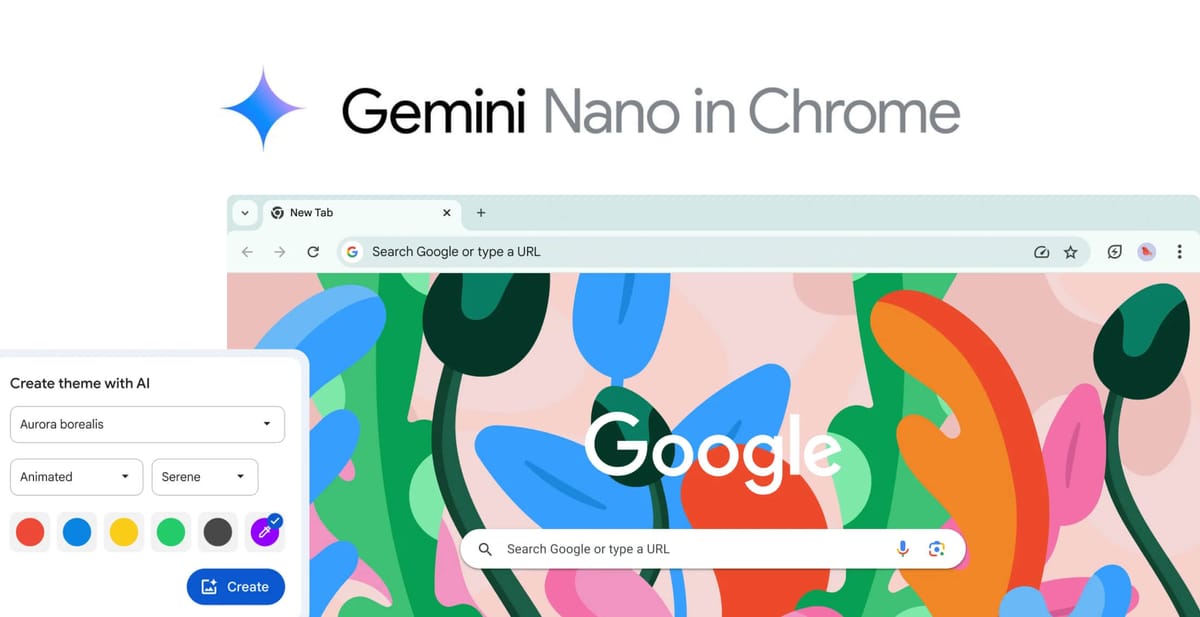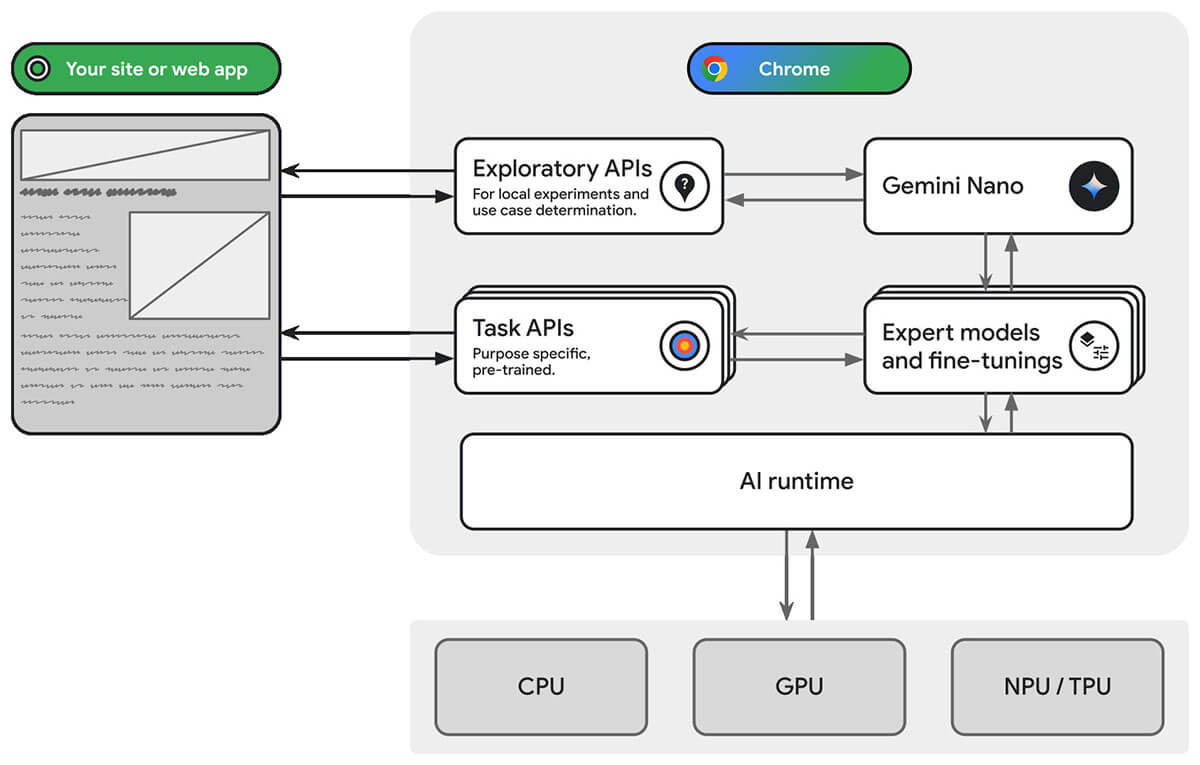
Google is bringing its small but powerful Gemini Nano large language model directly into Chrome desktops. This means starting with Chrome 126, developers and websites can leverage AI features without needing to build their own models.
For developers, this is a game-changer. Imagine adding features like summarizing webpages, translating text, or even helping users write content – all without the hassle of managing and updating large AI models. Chrome will handle that for them. This translates to faster development, lower costs, and a wider range of AI-powered features for Chrome users.
Additionally, this integration offers several benefits for web developers, including ease of deployment, access to hardware acceleration, and the ability to process sensitive data locally. On-device AI can also provide a snappier user experience, greater access to AI features, and offline AI usage.

Gemini Nano, the most compact model in the Gemini family of LLMs, is designed to run locally on most modern desktop and laptop computers. Google's recent investments in WebGPU and WebAssembly (WASM) support in Chrome have enabled these models to run efficiently on a wide range of hardware.
Developers will be able to access built-in AI capabilities primarily through task APIs, such as translation, summarization, and categorization. Google plans to provide exploratory APIs for local prototyping and soliciting feedback on potential future task APIs.
And that is just the beginning. Google is offering experimental features that could let developers do even more. Imagine a Chrome DevTools that uses AI to explain coding errors and even suggest solutions – a developer's dream come true!
While Google is aiming to make Chrome the go-to platform for AI on the web. They're working with other browser companies to potentially bring similar features to other browsers too. This could open doors for a new wave of AI-powered web experiences for everyone.
With the combination of WebGPU, WebAssembly, and Gemini built into Chrome, Google believes the web is now AI-ready. Developers can join the early preview program to experiment with early-stage built-in AI APIs and help shape the future of AI in Chrome.

